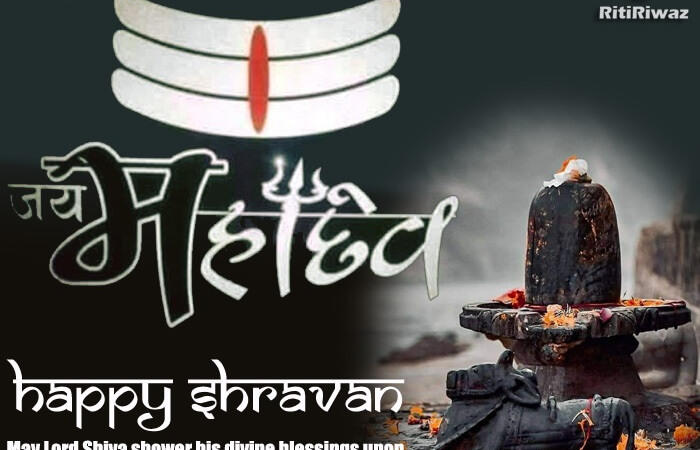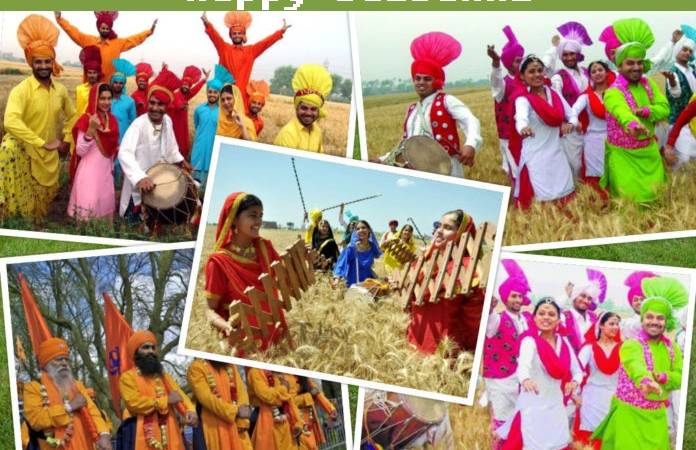Great Engineers of Ancient India

Indian civilization was the oldest civilization in the world and has a strong tradition of science and technology. It was the land of sages, seers, scholars, and scientists. Hinduism is a knowledge-based civilization, the Vedic texts should not be ignored dismissed as mythologies or as the work of imagination or just containing some moral stories. The Veda means knowledge and they contain relevant knowledge otherwise these texts would not have survived the millennia years of the historic storm. Let us know some of the great work done in ancient times.
-
Rama was the world’s first king to build a bridge across the sea. But he did not do it on his own. He sought the help of a great engineer called Nala according to Valmiki Ramayana. Any wise man will seek local knowledge when he ventures into new places. Nala knew the shallow areas across the sea in and around Tamilnadu. American space agency NASA also confirmed that there was a bridge through the satellite pictures. Some may argue that it was some natural rock projection. Any wise engineer will use such naturally elevated areas instead of deep waters to build a bridge. Thanks to Nala, the Tamil engineer, Rama was able to cross the sea!!
-
Another story of a squirrel helping Rama while he was building a bridge is found in Ramayana. Ancient people were wise to use animals to find any hidden dangers. Snakes, dogs, and cats can feel the tremors of the earth even before major earthquakes strike a region. They simply run to safe areas. This is what Nala and Rama did by using the squirrels. The Indus Valley seal, 3000-year-old Middle Eastern seals, and the Jataka story called Baveru Jataka narrate how we used crows to find the land during sea voyages.
-
Lord Krishna invented Boomerang. The Sudharsana Chakra he used killed his victims and returned to him the very next minute. This is made amply clear in the stories of Sisupala Vadham and Gajendra Moksham.
-
With Arjuna, he cleared a very big forest area called Khandava Forest by burning them. This resulted in very big clashes spanning several generations even after Krishna’s accidental death by an arrow from a hunter. Nagas (people with snake totem) were challenged to kill king Parikshit within seven days. Parikshit had all the security in the world like Black Cat commandos of modern India. But a murderer hid in the fruit basket that went into the palace and assassinated king Parikh. After this murder- revenge–murder cycle a settlement was reached. According to the peace agreement even today the Brahmins in their three times a day ritual called Sandhya Vandhanam repeat that peace agreement with the mantra ‘Narmadhayai Nama’.
-
Bageeratha changed the course of the mighty river Ganges. The vast forest areas of modern Bihar, Uttar Pradesh, and West Bengal were made into fertile lands by his marvelous engineering feat. In those days very few people lived in those jungles. Puranas say that Bageeratha did penance for several thousand years to do this that too ‘standing in one foot’. This is a phrase Indians use very often. Even the great Tamil poet Tiruvalluvar uses the simile of Stork that stands in one foot to catch a fish. This is the hidden language to say that he tried for a very long time with focused attention.
-
Vedic Saint Agasthya discovered the land route to South India via Vindhyas. The Puranas say that he “subdued the arrogance of the hills“, this is hidden language. Till Agastya’s this great discovery kings and travelers used only sea routes. Since they knew the secret of monsoon winds they can travel to West Bengal or Maharashtra from Sri Lanka in a few months’ time.
-
He was the first one to cross the Indian ocean and establish Hindu Empire in South East Asia. Puranas say that “he drank the ocean and spit it back after killing the asura“( sea pirates). Even today we find the statues of Agastya in Indonesia and Cambodia.
-
He killed sea pirates who gave a lot of trouble to Tamil Kings. He codified Tamil grammar. He changed the course of river Cauvery for the benefit of the Tamils. Tamil Pandya King Sri Maran established a Hindu empire in Cambodia in the second century AD. His name is in a Sanskrit inscription in Cambodia. He may be Muda Thiru Maran or Kadalul Mayntha Ilam Peru Vazuthi mentioned in Tamil Cankam literature.
-
Agastya led the first migration of Yadavas 18 branches into Tamil Nadu from Gujarat. It is in Purananuru poem sung by Kapilar and commentated by Nachinarkiniyar. When North India was suffering from a population explosion Lord Shiva sent him south and found a solution for the population problem.
-
Uparichara Vasu, an ancient king made mountain passes for the benefit of land travelers. He was a Vasu king ruling over the Chedi kingdom. Mahabharata says that he kicked the Kolahal mountain which was blocking the flow of the Shaktimati river. This is a hidden language to say that he diverted the river for irrigation by cutting the hills. Incidentally, Uparichara’s wife is named Girika meaning Miss Hills. The story goes that he was born in the river. The actual meaning is she is a tribal woman with local knowledge.
-
In short Bageerathan, Agastya, and Uparichara Vasu are the earliest engineers who built dams across the rivers. But unlike modern engineers, they did not use cement or mortar but they used the hills themselves. To avoid the force they made checks and balances. They use a hidden language saying that Shiva bore the force when Ganga came down from heaven. Heaven is the just Himalayas!!
-
Parasuraman retrieved a lot of lands and gave it to Keralites. A Pandya king also did this. His name was Nilam Tharu Vil Nediyon. Also known as Maa Keerthi meaning ‘Great Fame’. He built sea walls to prevent the sea from invading the land. But they use the hidden language to say that he prevented the sea by showing his bow with very great anger.
-
Balraman always traveled with an ax to clear the forests and make them cultivable. He was a great agriculturist. When Krishna spent most of his time in politics, his brother Balarama did constructive work.
-
Rig Veda and Puranas mention great architects- Twatri and Maya. Of these two, Maya was the most famous. His followers took the building construction work to the whole of South and Central Americas. Even today Maya’s buildings can be seen in Maya, Aztec, Inca, and Tolmec civilizations. The Thousand Pillar Halls which Nayak kings built-in Madurai and other places were mentioned in Mayan civilization works. Incidentally, Rig Veda also mentions 1000 oared ships 1000 pillar mandaps!!!
South Indian Tamil saint Appar always traveled with a pickaxe to clear the bushes from the temple towers. He simply followed Balarama.
-
Great Chola king Karikalan built a dam across river Cauvery in Kal Anai. The Grand Anicut was an engineering wonder of ancient Tamils. It was built around the 1st century AD.
-
Big temples of India, the number of which runs into thousands, stand as monumental proof for the engineering skills of Indians. Each temple will cost millions of dollars if it is built today!!
-
Mamallapuram and other Pallavacave temples are well-known milestones in Indian architecture.
-
Indus Valley Cities such as Harappa, Mohanjadaro, Lothal, Dholavira, Kalibangan need no new interpretations. The well-laid cities with uniform brick structures, Great Bath, most hygienic drainage systems, grain storage barns, and wells are all already well known to the world.
Vedas are the oldest religious scriptures in the world .2000-year-old Tamil literature translates the word VEDA as Secret (Marai in Tamil) and Unwritten Word (Ezuthaa Kilavi in Tamil). Vedic rishis/ascetics say that they enjoy saying anything with hidden meanings. That is why ancient Tamils translated Vedas as SECRET. Ithihasas also used a language of idioms and phrases. A child in a western country says Mum, buy me the game, I will give you a million kisses. The child did not mean literally one million kisses. Ancient Indians used a sort of language and said that Dasaratha had 60,000 wives.
Vedas also use this number in many places to say that Indra killed 60,000. What they wanted to say is “a lot of”.Not literally 60,00, Buddhist literature use 500 for everything. They a king visited 500 prostitutes.No one takes the meaning literally. Tamils used 16000 pon (gold) for most gifts. Even today in Brahmin marriages when the close relatives of brides and grooms donate something the priest will say a mantra and add “lakasham katti varahan” mama donation 101 rupees. The actual meaning is uncle donated just 101 rupees which is equal to 100000 lumps of gold!!
When thousands or hundreds of years lapse people lose the original meaning of those idioms and phrases and start taking literal meaning. Modern-day youths with their scientific bent of mind and background ridiculed these things as a pigment of the imagination. Let us reinterpret our Puranas and Ithihasas, but very very carefully. We should not confuse the already confused Hindu youths. The westerners made very big chaos by wrong interpretations. Take any one’s date Like Kalidasa or the date of Vedas or the Origin of Tamils.
Ten different authors say ten different things. They did not dare to do such things to Greeks or Romans or Sumerians or Egyptians. Even when they did this, they were all corrected long ago. But Indian students are still reading the 300-year-old history books written by westerners but printed with new wrappers. The old history book by Smith even has a picture of Brahmins with tufts fighting with aboriginals!!! Aryans Vs Dravidians!!! Divide and Rule!! They did it and succeeded for 350 years. Now the picture is changing very slowly for good.
Suggested Read: Engineers Day






